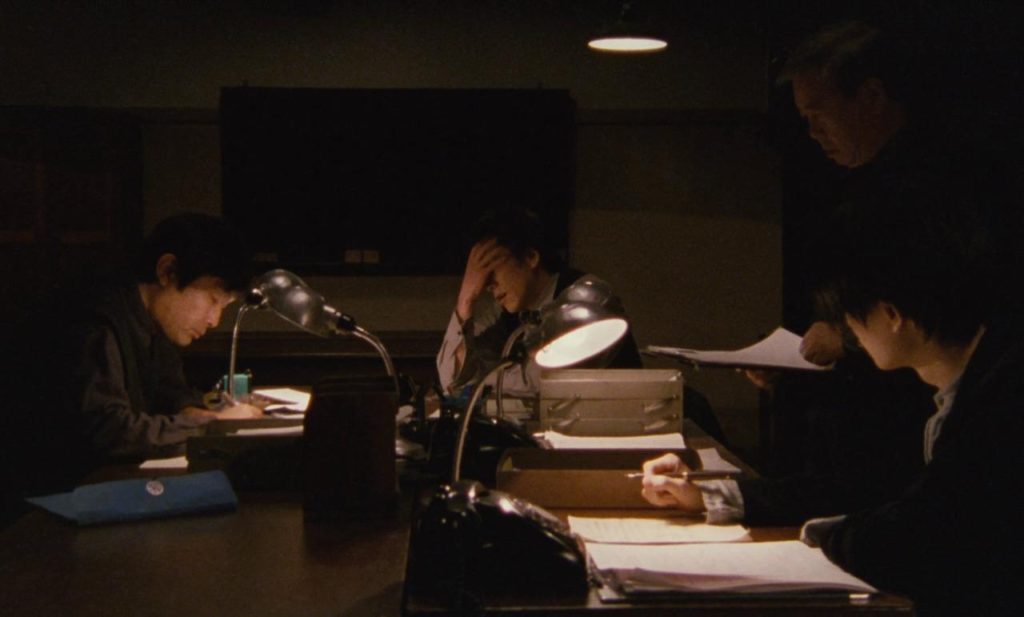
Hirokazu Koreeda is a director seemingly preoccupied with death: his films Maborosi, Hana, and Still Walking all focus on characters dealing with the death of a loved one. After Life is also concerned with death, but Koreeda approaches his subject from a different angle in this film. Whereas his other films showed what happens to the living after someone they know dies, After Life, as its title suggests, imagines what might happen to those who have died.
After Life is set in a kind of halfway house for the dead. In the film, the dead arrive at a school-like building where they will prepare themselves for eternity. When they arrive, the dead are told they have one week to select a memory from their lives in which they will live forever. Once they have selected their memory, the staff of the house work with them to produce a film that will capture their eternal moment. After they leave the house, we learn, everything else about who each person was will fade away, leaving only that singular moment.
The scenes of the varied inhabitants of the halfway house, ranging from a rebellious teenager to a World War Two veteran, recalling their lives feel almost improvised, as if Koreeda were making a documentary of the afterlife. And in a way, he was. Roger Ebert’s review of the film notes that “Some of these people, and some of their memories, are real (we are not told which). Koreeda filmed hundreds of interviews with ordinary people in Japan. The faces on the screen are so alive, the characters seems to be recalling events they really lived through, in a world of simplicity and wonder.”
While the way After Life moves from one character’s memories to the next gives the film an episodic feel, there is more than just a series of individual stories at work. Koreeda slowly reveals poignant connections between the characters in the film, and also what happens to those who are unable, or who refuse, to choose a memory for themselves.
—Tyler Petty, from his blog Faces Unveiled. (2011)
- Directed by: Hirokazu Koreeda
- Produced by: Masayuki Akieda Shiho Sato Yutaka Shigenobu
- Written by: Hirokazu Koreeda
- Music by: Yasuhiro Kasamatsu
- Cinematography by: Masayoshi Sukita Yutaka Yamazaki
- Editing by: Hirokazu Koreeda
- Release Date: 1998
- Running Time: 119
- Language: Japanese
Arts & Faith Lists:
2006 Top 100 — #34
2010 Top 100 — #65
2011 Top 100 — #85
2020 Top 100 — #75